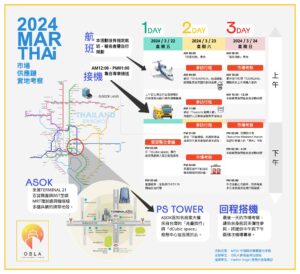In our daily life, it is inevitably to face civil disputes such as contract disputes, distribution of inheritance, and unjust enrichment. When deciding to file a civil lawsuit, it's important to know basic procedure.
Civil disputes inevitably occur in our daily lives, such as contract disputes, property distribution, or unjust enrichment. When deciding to file a civil lawsuit, it is important to understand the basic procedures.
Following is the basic introduction of civil lawsuit:
The following is a basic introduction to civil litigation:
1. Determine the right Court to file a lawsuit
Make sure you file your case in the correct court
First is to decide whether to start the case at Kwaeng Court or Provincial Court. In our earlier article “Introduction of Different Types of Courts in Thailand” (https://0rz.tw/Yckqd), we have introduced the function of Kwaeng Court and other courts which handle specific kind of civil cases.
The first step is to decide whether to initiate proceedings in a local or provincial court. In our previous article “Introduction to Thai Courts” (https://0rz.tw/Yckqd) has described the functions of district courts and other courts specialized in handling specific civil cases.
On the other hand, Kwaeng Court is in charges of civil cases that:
On the other hand, provincial courts deal with the following civil cases:
– The amount is more than 300,000 baht;
The amount involved exceeds 300,000 baht;
– The case isn't related to money, which the claimant requests to cease the disturbance, annoyance or damage;
The case is not about money, the plaintiff is asking for an end to harassment, obstruction or harm;
– It's a non-contentious case, such as requesting court order to determine the incapacitated of a person.
For non-litigation cases, such as requesting a court order to determine that a person is incapacitated.
In case in a province where there is no Kwaeng Court, the Provincial Court will take the role of Kwaeng Court.
If a province does not have a district court, the provincial court will act as a district court.
In addition, normally a lawsuit should be filed to Court within the province where the defendant resides or the place where the dispute happens. It also determines whether there's an agreement which indicate where to file a lawsuit when there is a dispute. For further information, please check Thai Civil Procedure Code, Section 4(1).
In addition, cases are usually litigated in the province where the defendant is located or where the dispute arises. In addition, whether there is a contract that stipulates the court to sue when a dispute occurs will also determine the location of the lawsuit. For further information, please refer to Section 4(1) of the Thai Civil Procedure Code.
2. Preparing relevant documents
Prepare relevant documents
– Complaint and relevant supporting evidence;
Complaint and relevant evidence;
– Power of Attorney: in case you appoint a lawyer(s);
Letter of attorney: if a lawyer is appointed;
– Official documents of personal information of defendant(s);
Official documents concerning the defendant’s personal information;
– Affidavit.
Affidavit.
3. Paying relevant fees
Pay relevant fees
The relevant fees should be paid include:
The relevant fees include:
– Court fees, which are fees charge by court, being paid when starting a lawsuit or filing an appeal. The court fees for monetary and non-monetary cases are different. There are also some fees required under Thai Civil Procedure Code.
Court fees payable to the court at the time of prosecution or appeal. Court fees are different for monetary and non-monetary cases, and the Thai Civil Procedure Code also stipulates other relevant court fees.
– Other court fees in civil cases
Other court costs
For example, fee for certification requesting judgment or its order shall be 50 baht.
For example, the verification fee for confirming a judgment or order is 50 baht.
– Other expenses: such as witness fees, travel expenses, and appraisal cost.
Other expenses: such as witness fees, travel expenses, and appraisal fees.
According to Section 149 under Thai Civil Procedure Code, if a plaintiff or a defendant is not able to pay its court fees, they may file an application by motion to exempt such fees.
According to Section 149 of the Thai Civil Procedure Code, if the plaintiff or defendant is unable to contribute to the court costs, they may file an application through a motion to waive such costs.
4. General procedure once the documents are submitted
Usual procedure after case submission
Please refer to our earlier article “General Procedure of Thai Civil Lawsuit” at https://0rz.tw/UT4w9
Please refer to our previous article "General Procedure for Civil Litigation in Thailand" https://0rz.tw/UT4w9




